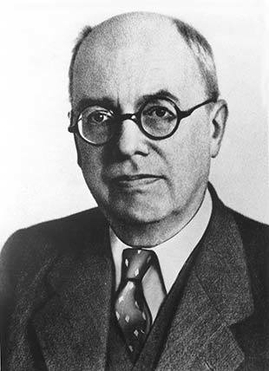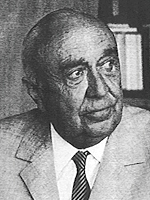Seminar for English Studies
| | This section needs expansion. You can help by adding to it. (June 2010) |
The Faculty of Modern Languages is one of twelve faculties at the University of Heidelberg. It comprises the Seminar for German Studies, Seminar for English Studies, Seminar for German as a Foreign Language Philology, Seminar for Translating and Interpreting, Seminar for Computational Linguistics, Seminar for Romance Studies, Seminar for Mediaeval and Neo-Latin Philology, and the Seminar for Slavic Studies. [1]
The Seminar for German Studies is situated in Palais Boisserée since 1969. [2]
| | This section needs expansion. You can help by adding to it. (June 2010) |
| | This section needs expansion. You can help by adding to it. (June 2010) |
| | This section needs expansion. You can help by adding to it. (June 2010) |
| | This section needs expansion. You can help by adding to it. (June 2010) |
The discipline of Romance languages exists at Heidelberg since 1842. The institute was founded in 1924. Noted Romance scholars include Karl Vossler and Ernst Robert Curtius. [7]
The Heidelberg Seminar for Medieval Latin Philology was founded on May 2, 1957. In 1973 the Seminar's name was expanded to include Neo-Latin Philology. In 2007 the seminar celebrated its 50th anniversary. After the Medieval Latin Seminar in Munich, founded shortly after the turn of the century, the Heidelberg Seminar is the second oldest in Germany. [8]
| | This section needs expansion. You can help by adding to it. (June 2010) |

The Rhenish Friedrich Wilhelm University of Bonn is a public research university located in Bonn, North Rhine-Westphalia, Germany. It was founded in its present form as the Rhein-Universität on 18 October 1818 by Frederick William III, as the linear successor of the Kurkölnische Akademie Bonn which was founded in 1777. The University of Bonn offers many undergraduate and graduate programs in a range of subjects and has 544 professors. The University of Bonn is a member of the German U15 association of major research-intensive universities in Germany and has the title of "University of Excellence" under the German Universities Excellence Initiative; it is consistently ranked amongst the best German universities in the world rankings and is one of the most research intensive universities in Germany.

Heidelberg University, officially the Ruprecht Karl University of Heidelberg, is a public research university in Heidelberg, Baden-Württemberg, Germany. Founded in 1386 on instruction of Pope Urban VI, Heidelberg is Germany's oldest university and one of the world's oldest surviving universities; it was the third university established in the Holy Roman Empire. Heidelberg is one of the most prestigious and highly ranked universities in Europe and the world. Heidelberg has been a coeducational institution since 1899. The university consists of twelve faculties and offers degree programmes at undergraduate, graduate and postdoctoral levels in some 100 disciplines. The language of instruction is usually German, while a considerable number of graduate degrees are offered in English as well as some in French.

The University of Münster is a public research university located in the city of Münster, North Rhine-Westphalia in Germany.

Indo-European studies is a field of linguistics and an interdisciplinary field of study dealing with Indo-European languages, both current and extinct. The goal of those engaged in these studies is to amass information about the hypothetical proto-language from which all of these languages are descended, a language dubbed Proto-Indo-European (PIE), and its speakers, the Proto-Indo-Europeans, including their society and Proto-Indo-European mythology. The studies cover where the language originated and how it spread. This article also lists Indo-European scholars, centres, journals and book series.
German studies is the field of humanities that researches, documents and disseminates German language and literature in both its historic and present forms. Academic departments of German studies often include classes on German culture, German history, and German politics in addition to the language and literature component. Common German names for the field are Germanistik, Deutsche Philologie, and Deutsche Sprachwissenschaft und Literaturwissenschaft. In English, the terms Germanistics or Germanics are sometimes used, but the subject is more often referred to as German studies, German language and literature, or German philology.

Hans Robert Jauss was a German academic, notable for his work in reception theory and medieval and modern French literature. His approach was derived from the hermeneutics of Hans-Georg Gadamer.

Ernst Robert Curtius was a German literary scholar, philologist, and Romance language literary critic, best known for his 1948 study Europäische Literatur und Lateinisches Mittelalter, translated in English as European Literature and the Latin Middle Ages.

The University of Duisburg-Essen is a public research university in North Rhine-Westphalia, Germany. In the 2019 Times Higher Education World University Rankings, the university was awarded 194th place in the world. It was originally founded in 1654 and re-established on 1 January 2003, as a merger of the Gerhard Mercator University of Duisburg and the university of Essen. It is based in both the cities of Duisburg and Essen, and a part of University Alliance Metropolis Ruhr.
The Gottfried Wilhelm Leibniz Prize, in short Leibniz Prize, is awarded by the German Research Foundation to "exceptional scientists and academics for their outstanding achievements in the field of research". Since 1986, up to ten prizes are awarded annually to individuals or research groups working at a research institution in Germany or at a German research institution abroad. It is considered the most important research award in Germany.
The Faculty of Philosophy and History is one of twelve faculties at the University of Heidelberg. The present Faculty of Philosophy is the result of the amalgamation in 2002 of sectors of the former Faculties of History and Philosophy and of Oriental and Classical Studies. It is made up of three groups of subjects with common cultural, historical and geographical roots. It comprises 23 institutes and departments.

Wolfgang Krause was a German philologist and linguist. A professor at the University of Göttingen for many years, Krause specialized in comparative linguistics, and was an authority on Celtic studies, Tocharian languages, Germanic studies, Old Norse and particularly runology.

Friedrich Maurer was a German philologist who specialized in Germanic studies.
Jerold C. Frakes is a significant scholar of medieval European literature across several languages and literatures. He studied at Memphis State University, the Universität Heidelberg, and the University of Minnesota. After more than two decades in the Comparative Literature and the German departments at the University of Southern California, he moved in 2006 to the University at Buffalo, where he was appointed SUNY Distinguished Professor in 2014. He has held visiting appointments at several universities, including the Universität Heidelberg, the Freie Universität Berlin, Columbia University, and the Universitetas Vilniaus.
The Center for Jewish Studies Heidelberg is an accredited institution of higher learning, supported by the Central Council of Jews in Germany and funded by the German federal government. The HfJS operates in close cooperation with the University of Heidelberg and opens its doors to students and scholars, regardless of religious affiliation.
Albrecht Riethmüller is a German musicologist.
Frank-Rutger Hausmann is a German Romanist and historian.

Beatrix Busse is Professor of English Linguistics and the Vice-Rector for Student Affairs and Teaching at the University of Cologne. From 2011 to 2019 she held the Chair of English Linguistics at Heidelberg University where she was appointed as Vice-Rector for Teaching and Student Affairs twice, from 2013 to 2019.

Eugen Fehrle was a German philologist who specialized in classical and Germanic philology.
Patrizia de Bernardo Stempel is an Italian philologist, linguist and scholar of Celtic studies.
Gerlinde Huber-Rebenich is a German philologist. She specializes in medieval and neo-Latin literature, and the medieval reception of Ovid.